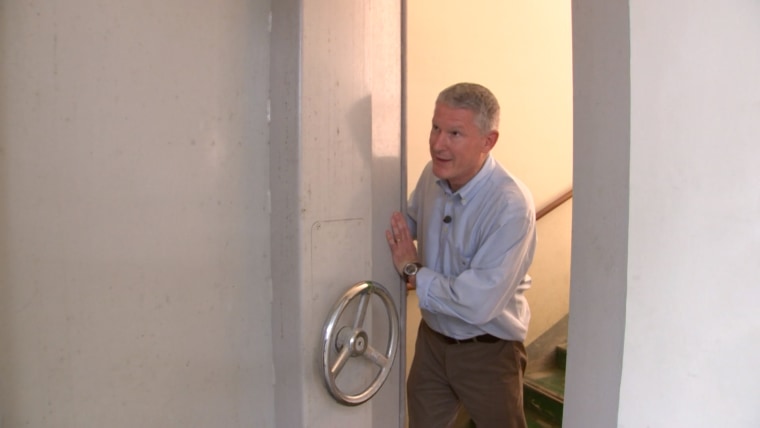SEOUL, South Korea — Tense negotiations between North and South Korea continued through the night as Seoul demanded a formal apology for injuries to two of its soldiers this month, South Korean officials said Monday.
The talks were described as tense after South Korea's Defense Ministry said it had detected "unusual" North Korean submarine activity even as the countries are trying to resolve a spat that brought the peninsula close to war last week.
Official sources said South Korean President Park Geun-hye told her staff during a meeting Monday morning that "it is most important to get North Korea's apology" for injuries to the two soldiers, who were wounded by landmines along the border early this month.
"There is no room to back down," the sources quoted Park as having told her staff. "If there is no apology, we will respond accordingly."
Pyongyang denies having laid the mines, which exploded Aug. 4. Days later, Seoul began booming propaganda broadcasts from banks of loudspeakers, including news reports and entertainment from the South, resuming a tactic both sides halted in 2004. Park was quoted as saying the broadcasts are continuing.
A South Korean official told NBC News that the submarine movement was a sign that the North was using a "dual tactic" of "war and peace strategies" as envoys met in the Panmunjom truce village inside the Demilitarized Zone on the border, also known as the DMZ.
The nations entered a second day of talks Sunday after the North entered a "quasi-state of war" over the South Korean propaganda.
"The top representatives from South and North Koreas are continuously sitting in a drawn-out and tense negotiations amid the serious national security situation," a South Korean government official told NBC News on Monday.
Sunday, a defense official said Seoul was "detecting unusual movement from North Korean submarines, in that they have left their bases, and also North Korea has doubled artillery power along the border."
Related: N. Korea Puts Army on 'Quasi State of War,' Sets Loudspeaker Deadline
"This clearly shows North Korea's dual tactic of both peace and war strategies towards Seoul," the official said, adding: "We continue to maintain the highest level of military alertness and are paying close attention to North Korea's military movements."
Another South Korean defense official said about 70 percent of the North's submarines were not in their usual positions. However, it was not clear how many submarines that represented.
The crisis escalated Thursday when the North fired four shells into the South, according to Seoul, which responded with a barrage of 29 artillery rounds. North Korea declared it would enter war footing in front-line areas and made an ultimatum for Seoul to halt its broadcasts.
That deadline passed Saturday without military clashes.

